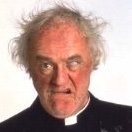Too Much Debt Leads To Bankcruptcy.
-
Recently Browsing 0 members
- No registered users viewing this page.
-
Topics
-
-
Popular Contributors
-
-
Latest posts...
-
10
Report Thailand Named World’s Safest Holiday Destination in 2025
I’d go along with that but am bias, however can’t help but wonder what criteria they’ve used. Walking around at night, generally, and crime ok. But surely the state of the roads would deem it some dodginess… we also have the likes of the Philippines, Sri Lanka, Cambodia, India in the top 10. What about Nordic destinations? Hmmm -
24
THAILAND LIVE Thailand Live Thursday 10 July 2025
Illegal Chinese Cosmetics Factory Raided – 15 Chinese Nationals Detained, Plant Shut Down Pictures courtesy of Workpoint. Authorities in Chachoengsao province have shut down an illegal Chinese-owned cosmetics factory operating in Bang Pakong district, following a raid that uncovered unlicensed foreign workers and counterfeit cosmetic products falsely labelled as made in Thailand. Full story:https://aseannow.com/topic/1366289-illegal-chinese-cosmetics-factory-raided-–-15-chinese-nationals-detained-plant-shut-down/ -
13
Hamas Leaders Ordered to Disarm in Doha Amid Ceasefire Push
Quite, the inconvenient truth that the pro Hamas lobby try to leave out. These negotiations are being carried out with Hamas using leverage due to the hostages they still have alive and the bodies of those they murdered. The last hostage release of the Bibas children that Hamas murdered while still in captivity was probably one of the most depraved acts of evil ever filmed and watch by so many people around the world. Instead of constantly condemning Hamas for using hostages as bargaining chips whether they are alive or dead, the pro Hamas lobby just carry on posting and making making more demands for their release despite the fact that just about every country in the world calls for their immediate and unconditional release. They ignore the war crimes that Hamas are carrying out with them daily and using them and instead claim Israel is putting up barriers. Thousands of Gazans cheered and celebrated when the bodies of brothers Ariel Bibas and Kfir Bibas were paraded in coffins through Gaza. -
4
Report Drunken Brawl Leaves Chaos and Bruised Police in Pattaya
A strong warning is why behavior like this will continue. Arrest, charges, jail, for assaulting a police officer, drunk and disorderly, disturbing the peace. -
-
211
UK Mohammed Fahir Amaaz & Muhammad Amaad on Trial over Manchester Airport Clash
What a load of totally unsubstantiated rubbish, but thanks for sharing the thoughts of the grandstanding grifter party, regardless of how hopelessly clueless they were back then, and how that really hasn't changed. Note they didn't have the "Starbucks video" either. The clown party of 4 (and 2 suspended).
-
-
Popular in The Pub









.thumb.png.59631667ecf82c97db947523760c9cdd.png)

.thumb.jpg.4fd22303fa94eb0a6ebf5a9cf7194eb4.jpg)

Recommended Posts
Create an account or sign in to comment
You need to be a member in order to leave a comment
Create an account
Sign up for a new account in our community. It's easy!
Register a new accountSign in
Already have an account? Sign in here.
Sign In Now